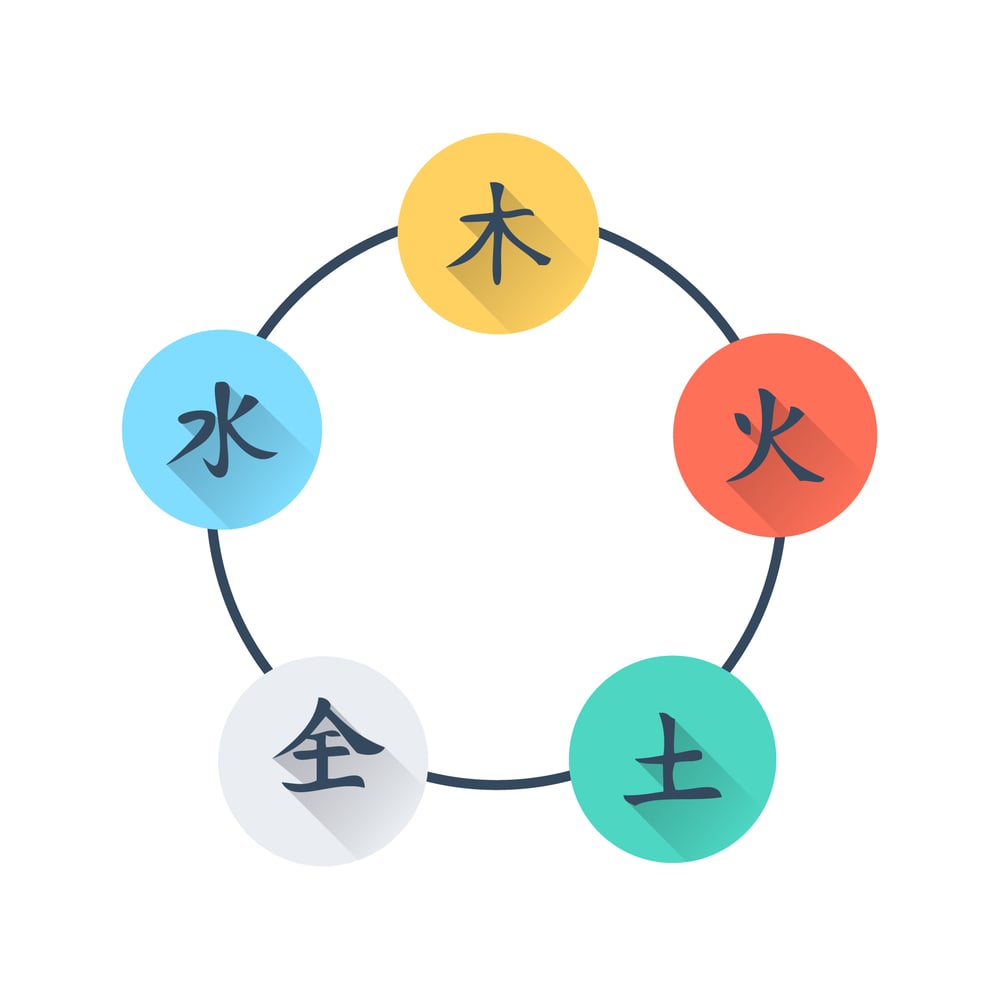
Making the decision to venture into acupuncture school is no small thing -- it requires a lot of trust, determination, drive, and commitment to your vision for your future as a thriving, professional practitioner. Many incoming students just beginning the journey of acupuncture school experience similar doubts or fears as they begin treading the new waters of the program, unsure of what life changes may lie ahead. Having been at AOMA for three and a half years now, I’ve talked to a good number of students pursuing their education at our Austin-based acupuncture school, each of them carrying a similar stream of worries and qualms about how to adapt themselves to the changing tides of their lives.
Having been down this road and observed the process of many others walking it alongside me, I have decided to offer some insider tips from the perspective of a senior preparing to graduate. Consider this a fun and simplified recipe for success, if you will, to help obliterate those pesky self-limiting beliefs and insecurities that commonly surface at the start of this acupuncture school adventure.
I know what it’s like to be overwhelmed as a “newbie” beginning to explore the new terrain of acupuncture school, so I’m here to remind you that the rewards of this path far outweigh the challenges, and that all you need is a little strategy via creative tools to help you navigate this program with ease, support and laughter.
I’ve also decided to incorporate one of the primary, foundational theories we learn about in Chinese Medicine -- Five Element Theory -- as themes for my tips in order to stimulate an integrated understanding of how to balance as you proceed toward the route. Chinese Medicine considers equilibrium of the five elements of Wood, Fire, Earth, Metal and Water to be a crucial aspect of health and vitality -- and this is in all realms of life, including our physical surroundings and activities as human beings. So, I’ve taken some of the basic associated energetic principles of each element and interwoven them into each of my five tips to ensure you a success recipe that is as balanced as it is diverse.
Tip One: Cultivate structure and action-oriented energy: Wood
The wood element’s M.O. is partially about making use of structure and organization, then taking action in order to manifest a vision. Take some time to find an organizational system for studying that works for you, and then stick to it for the remainder of your time at AOMA. If you find a consistent and time-proven method for not only organizing your study materials and creating study systems, but also for keeping track of assignments and tests, I can promise you that your life and graduate school adventure and life as a whole will become a lot easier to navigate and more streamlined. Here are some ideas for you to play with:
Find the study environment that works best for your unique constitution, personality and needs. Do you study better in study groups with the help of the “Group mastermind,” or do you study more efficiently in a quiet space, alone? Purchase an agenda to put all your dates into, create some folder systems to keep track of different classroom materials, and designate a “sacred study space” where you actually enjoy retreating to when it’s time to hit the books, whether a favorite coffee shop or a little candlelit corner of your own personal home space.
Also, wood energy has a lot to do with CHANGE -- and I can assure you, you will experience LOTS of it as you traverse this program: so remember in times of discomfort or turmoil or fear, BREATHE DEEPLY and maximize mantras about “going with the flow,” because you are changing and evolving in profound ways, and great changes can often be a little uncomfortable. Embrace the growing pains and breathe through them!
Tip Two: Discover connection and transformation: Fire
The fire element is all about transformation and connection -- and while transformation is a guarantee in this program, we can often forget to reach out and ask for support from our peers, or bond with friends and loved ones, when we are beginning such a rigorous program in acupuncture school.
Connect with your community, peers, advisors, faculty, friends and loved ones as much as possible: reach out for support whenever you need it, and I highly recommend you have a backup support team outside of the program that you can call upon when you need a break from the intensity of studying and immersion in medicine. Also, I propose you find yourself a check-in buddy, someone else who is in the program and who understands the ups and downs of such a powerful and intensive path -- perhaps maybe a senior student you can confide in and who can offer you advice or studying support when needed. When you hit those moments of challenge or doubt, talk to others who have been through it before, it really helps to call upon a mentor and guide who has been through the transformation of fire and gotten to the other side -- to discover what THEIR success tools were, their own personal recipes for thriving their way through acupuncture school.
And hey -- don’t forget to go out and HAVE FUN!! Take breaks from studying and be social when you can, pump up the joy factor -- because fire is all about the JOY of connection, and remembering to seek out that pleasure and happiness factor even when times are tough.
Tip Three: Stay grounded and find your center point: Earth
The earth element’s position is in the CENTER -- the middle of all the other elements. The health of the earth element is said to be the most important of all the elements, because of its role of being the man in the middle, at the core of all the others. Earth’s job of stabilizing, nourishing and grounding is a super important one, and so this particular tip is one that I highly suggest you take to heart and implement every single day you are involved in this program (and heck, every day for the rest of your lives as evolving practitioners!) If you were to choose only ONE tip of all five of these to take home today, this is the one I recommend you remember and tuck into your student tool belt:
ALWAYS make time to take care of yourself no matter how busy you are! Whether it be through qigong, yoga, rigorous physical exercise, rest, good diet, laughter, or being gentle with yourself -- try to not let your self-care slip for too long. On this path of frequent studying, hard work, transformation and manifesting a new career and life path for yourself, you will also be learning how to be a space-holder for others: and that requires a lot of energy and commitment to taking care of YOU no matter how many patients you are providing care for. No matter how many hours you are spending studying, you can always make time for a quick walk or 30 minutes of yoga or breathing exercises. Find what nourishes and feeds YOU, what makes you feel good, taken care of, and healthy, and make a commitment to doing that as a feel-good routine throughout your time in this program. Tip of the trade: Eating healthy food and regular exercise during your graduate school stint REALLY helps feed your brain juicy energy, which you will need to help support you every step of the way!
Tip 4: Letting go of what doesn’t serve: Metal
The metal element is fairly straightforward and to-the-point, so this tip will model those qualities: Know your worth and let go of any focus on your imperfections and self criticism. Don’t listen to the inner critic about your abilities, gifts, and capacities as a practitioner: trust you can make a difference! Because you can -- that’s why you were called to do this work, that’s why you are here, and don’t lose sight of that confidence and knowing when you are moving through the more challenging aspects of this path.
Tip Five: Develop expansiveness, emotional well-being, deep calm, and connection to source: Water
The Water element has a lot to do with connecting into the expansiveness that is available to all of us, in order to embody a deep sense of calm and inner peace. That calm is pervaded by the stability of emotional and spiritual well-being, and, our connection to Spirit, God, Source, the Universe, or whatever sense of a higher power you may believe in. If you don’t believe in a higher power, then simply consider the water element to relate to the knowing that as a human being, we are but one small piece of an infinitely larger puzzle that is the greater Universe at large, and that all aspects of life are intrinsically connected, from the butterfly flying by you to the plant that houses the butterfly’s chrysalis to the shoulder of the person the butterfly lands one, brightening their day as a result.
Tapping into the energy of the water element will become incredibly important to your well-being as a burgeoning practitioner -- because it requires a lot of inner peace and stability to be able to create a safe space for others as a practitioner. School certainly can trigger a great variety of stressors, and the water element can help you zoom out and feel the bigger picture, then relax into the peace that can blossom from a softened emotional body and a knowingness that all is well.
Tip: Meditate often, or find a spiritual practice that keeps you internally peaceful -- some other ideas are yoga, qigong, gardening, walking or hiking in nature. There are so many different options, and really, anything that makes you feel internally peaceful and calm will connect you to the water element. Try different mind-body practices and find one that really resonates with you as a method for cultivating emotional stability and a serene mind.
Also, the water element relates to fear -- and my tip is, banish it! Let go of the fear and always remember you are strong and capable as a human being and as a future practitioner, or you wouldn’t be here, joining our ranks at this highly esteemed Austin acupuncture school.
-Christina Korpik























 Coming from a Western medicine practice in the Navy as a Fleet Marine Force Corpsman, the transition to the Eastern medicine view posed some difficulty. For the first couple of years, I tended to attempt translation in my mind to figure out how acupuncture "really" works. Through the guidance of the excellent professors at AOMA, I was able to finally separate the two medicines in my mind and take a beginner's mind approach to TCM.
Coming from a Western medicine practice in the Navy as a Fleet Marine Force Corpsman, the transition to the Eastern medicine view posed some difficulty. For the first couple of years, I tended to attempt translation in my mind to figure out how acupuncture "really" works. Through the guidance of the excellent professors at AOMA, I was able to finally separate the two medicines in my mind and take a beginner's mind approach to TCM.
